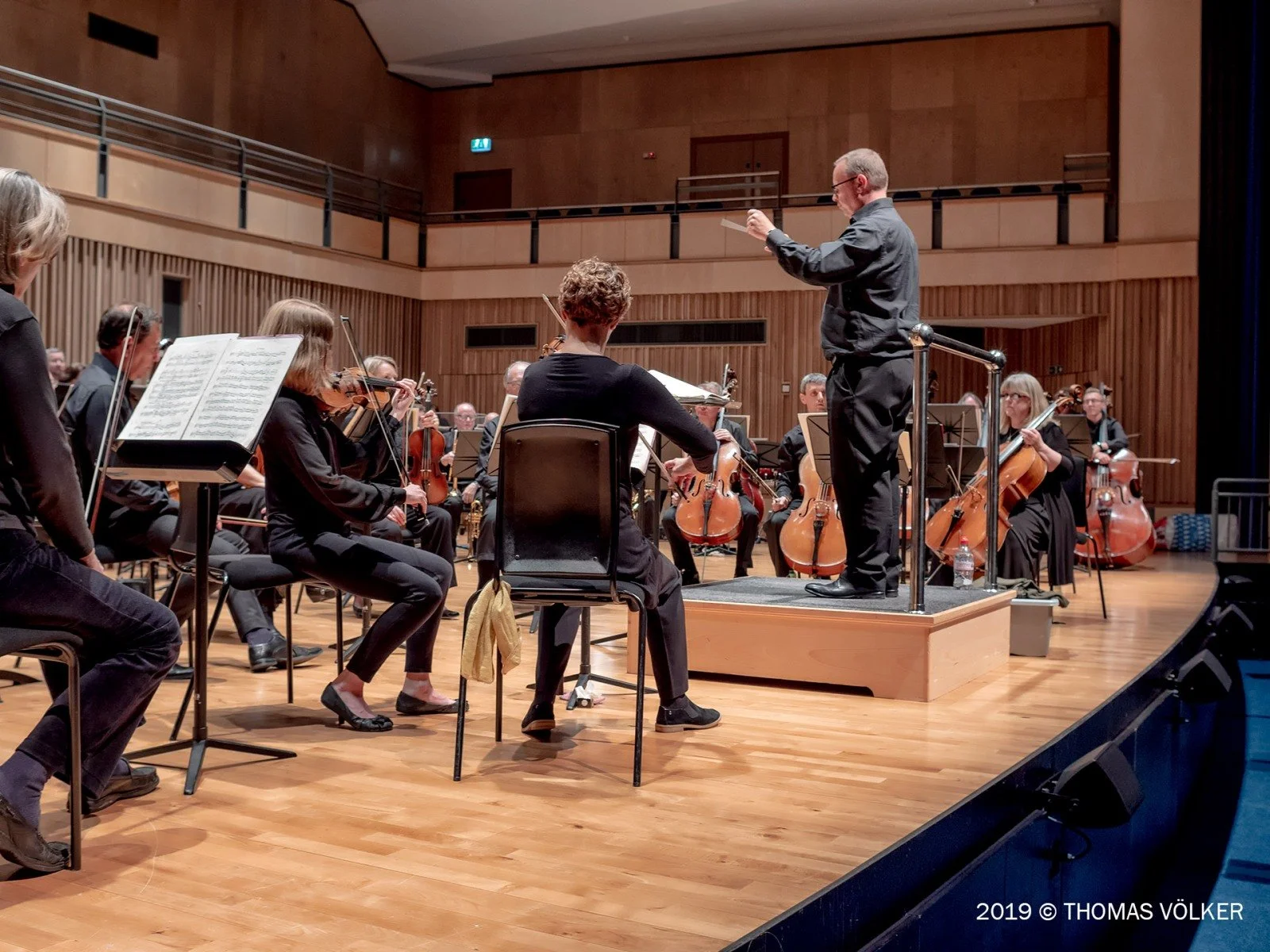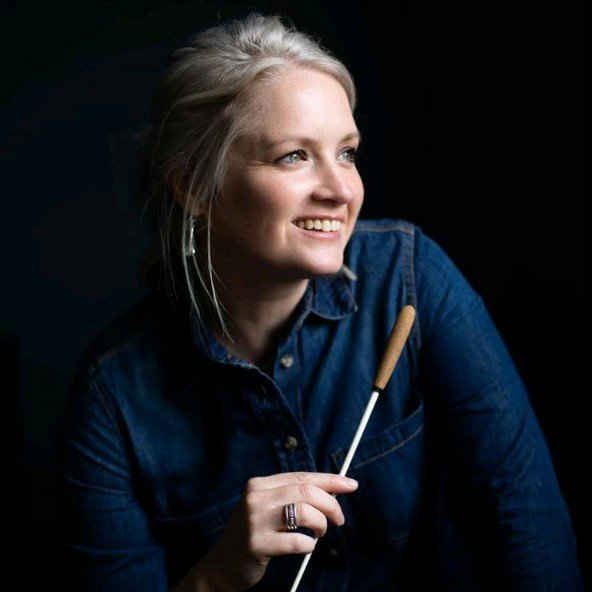Berlioz, Arnold and Foulds - SWSO
I’ve long had an affinity with lost causes. Richard Hull, the conductor of the Saffron Walden Symphony Orchestra (SWSO) is clearly an ardent advocate for John Foulds described by the maestro as ‘one of the greatest composers of real genius this country has produced that you have probably never heard of’. Confession time: I am one of the millions who have indeed never known this name in relation to classical music. It was with keen anticipation then that I hurried along to the Saffron Hall to hear ‘Mirage’ – a kind of symphonic tone poem composed by J Foulds in 1910. The man, born in Manchester in 1880, was clearly a pioneer. The piece is densely packed with clusters of sound punctuated by shifting time registers and – here’s the thing- a penchant for quarter tones. The latter provided an ear-catching few minutes in the third movement (of six). The strangely sliding strings reminding one of a wind-up gramophone running out of power. It sounded so experimental especially given that this rarely heard piece is over 110 years old.
‘Rarely’ is no surprise: little of Fould’s considerable output was played either in his own day and certainly not in ours. In ‘Mirage’ there is an overarching sense of melancholy and perhaps a touch of pretention in the scoring. The SWSO did its best to bring us into the Fould but alas, it didn’t attract me. I found the whole thing rather repetitive and uninteresting – it’s many moments of fff climatic peaks just a little too much of a good thing. Of course I may be wrong and perhaps a second hearing would turn me into a fan. But for now, Fould stays in my well-stocked ‘lost cause’ drawer.
The second piece was another unfamiliar work. Malcolm Arnold’s Clarinet Concerto No. 2. It was written for the jazz legend Benny Goodman who in the late 1960s phoned the composer to commission the work. Malcolm, famously irascible, told the caller to ‘sod off’ - he assumed it was a hoax call. When Arnold realised his mistake he gifted Goodman a bottle of whiskey and later the score to the new piece. The concerto is a real showcase for the instrument – but I have to admit it is a something of a curate’s egg. The soloist was Steph Godwin and she made an admirable crack at making sense of this strange beast. The first movement has the clarinet making a series of high then low pitched leaps and there seemed to be little of Arnold’s usually characteristic melodic gift. The adagio was better: a bluesy melody rocking and swaying and sounding thoroughly American – strange that Arnold was that most English of composers. The third movement was utterly nuts – a simple ragtime in which the composer was clearly trying to raise the spirit of the dead Scott Joplin. It was good to hear this piece but sadly I don’t have much urge to hear it again any time soon.
Steph Godwin
The third piece, after the interval, was a showstopper: Berlioz’s Symphonie Fantastique. The SSWO seemed much more relaxed in playing this great work. I never fail to be astounded that this deeply programmatic work (about the composer’s obsession for an unrequited actress of the day) was written in 1829. It still sounds audacious and packed with musical thrills, unexpected twists and turns and of course great earworm tunes. The long piece certainly raised the spirits (in a good way) and I rejoiced that dear old Hector B. is and will always remain a found cause.







